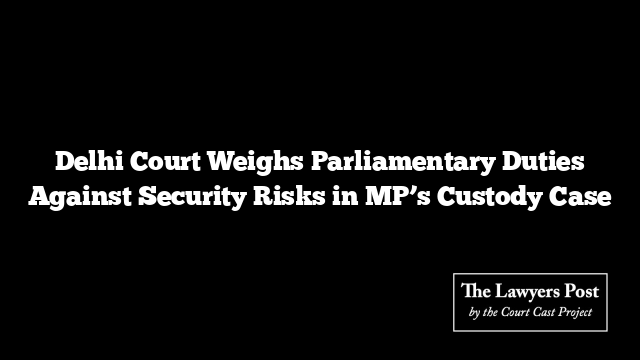The Delhi High Court has taken a nuanced stance on the contentious issue of whether jailed Baramulla MP Abdul Rashid Sheikh, also known as Engineer Rashid, should be allowed to fulfill his parliamentary duties while remaining in custody. Rashid, currently in Tihar Jail on charges under the Unlawful Activities (Prevention) Act (UAPA), has sought permission to attend ongoing parliamentary sessions.
The court’s bench, comprising Justices Chandra Dhari Singh and Anup Jairam Bhambhani, posed critical questions about the National Investigation Agency’s (NIA) persistent opposition to Rashid’s request. The judges pointed out that stringent security measures, including police escorts, could address concerns while enabling Rashid to uphold his responsibilities as an elected representative.
Justice Bhambhani articulated a poignant scenario, questioning the implications for Rashid’s dual role as a detainee and a parliamentarian. “If he remains in custody for the next 10 years while holding office, what happens to both his rights and obligations as a parliamentarian?” the judge remarked. The court underscored the significance of balancing democratic principles with security concerns, emphasizing that Rashid’s earlier attendance at parliamentary sessions had been conducted under strict conditions.
Rashid’s legal team, led by Senior Advocate N Hariharan, argued that his attendance was not a plea for bail but a fulfillment of his constitutional duties. “No parole, no interim bail—just send me in custody,” Hariharan asserted, highlighting that Rashid was willing to abide by all restrictions, including the presence of a plainclothes officer during parliamentary proceedings.
The NIA’s counsel, however, maintained that granting such permission could lead to complications, particularly if Rashid used the platform for political statements. The court countered by emphasizing the sanctity of parliamentary processes, remarking that the legislature’s authority must not be undermined.
As deliberations unfolded, the bench probed whether Rashid’s request was an indirect attempt to circumvent the denial of bail by the trial court. Hariharan rebutted this suggestion, emphasizing continuity in permissions previously granted by a single-judge bench.
The judges reserved their decision after considering all arguments, leaving the complex interplay of legal, security, and democratic considerations hanging in balance. For now, Rashid’s ability to participate in the nation’s legislative proceedings while in custody remains a question awaiting resolution.





